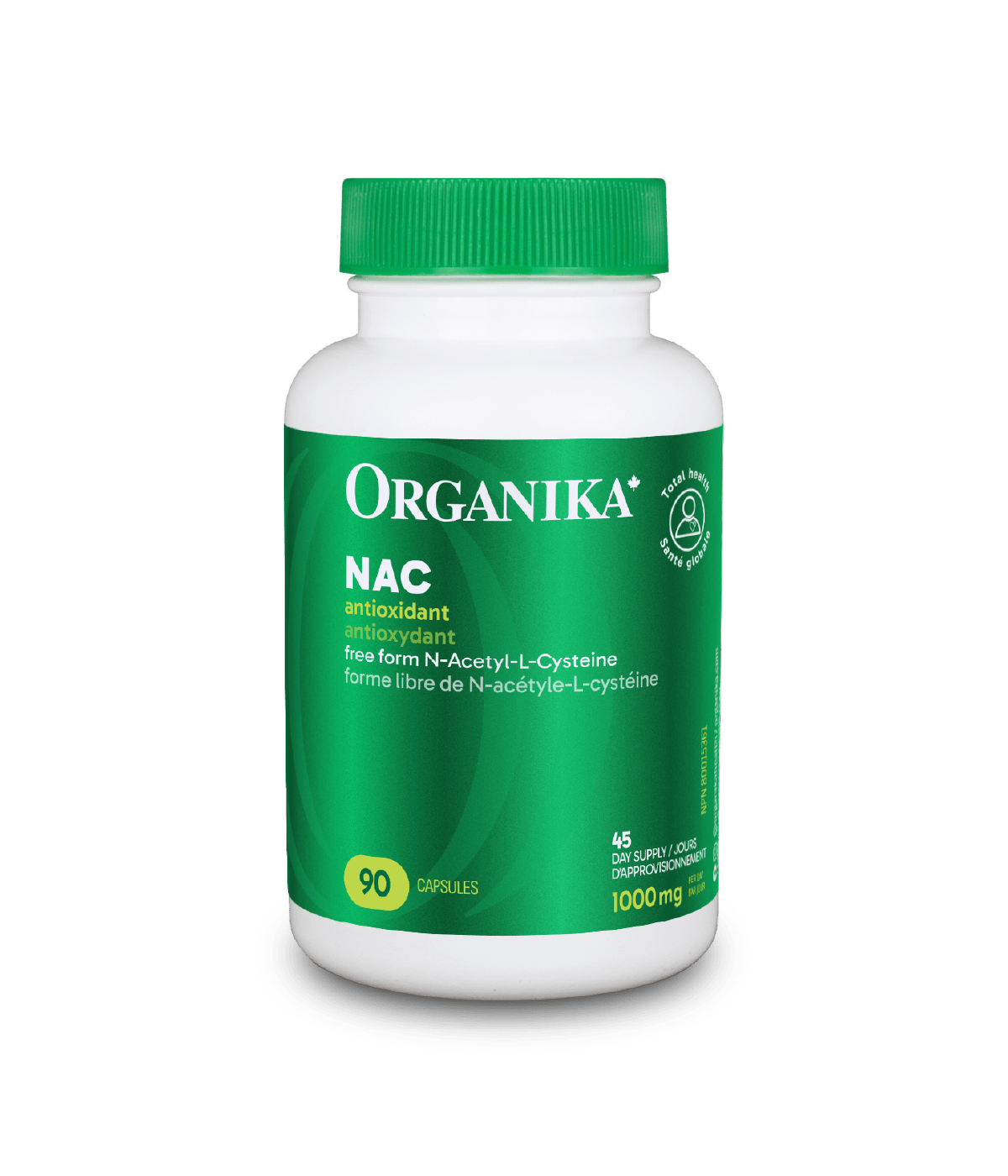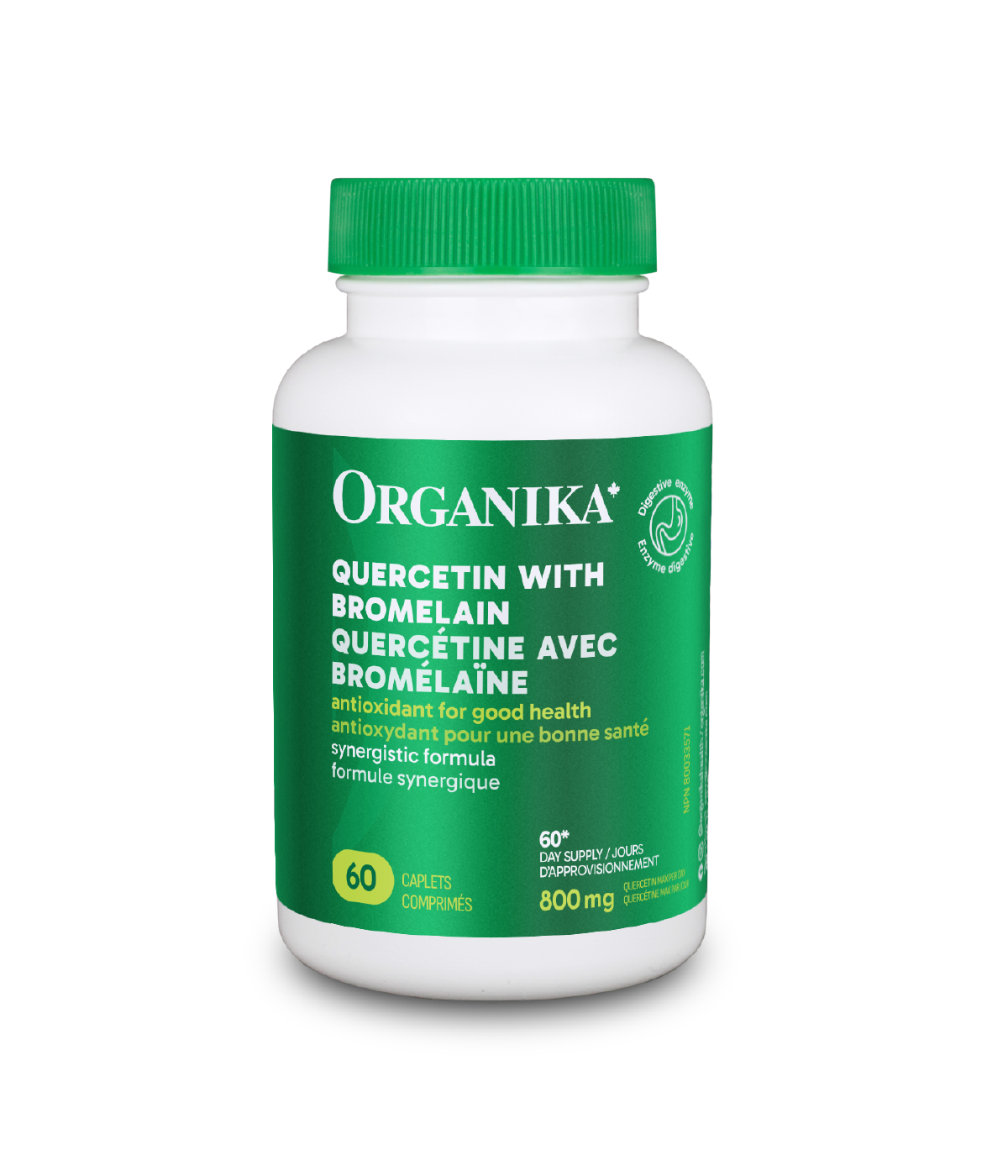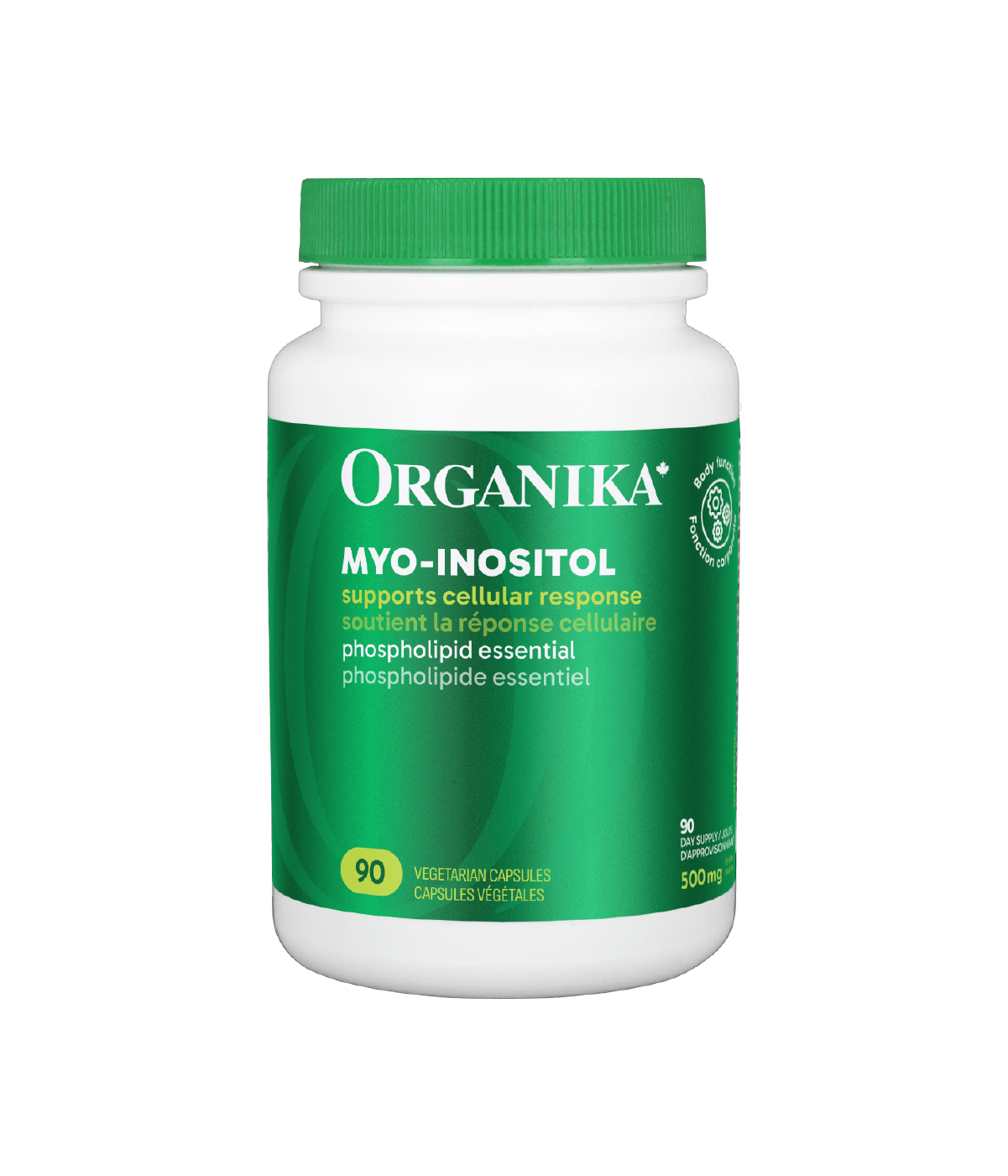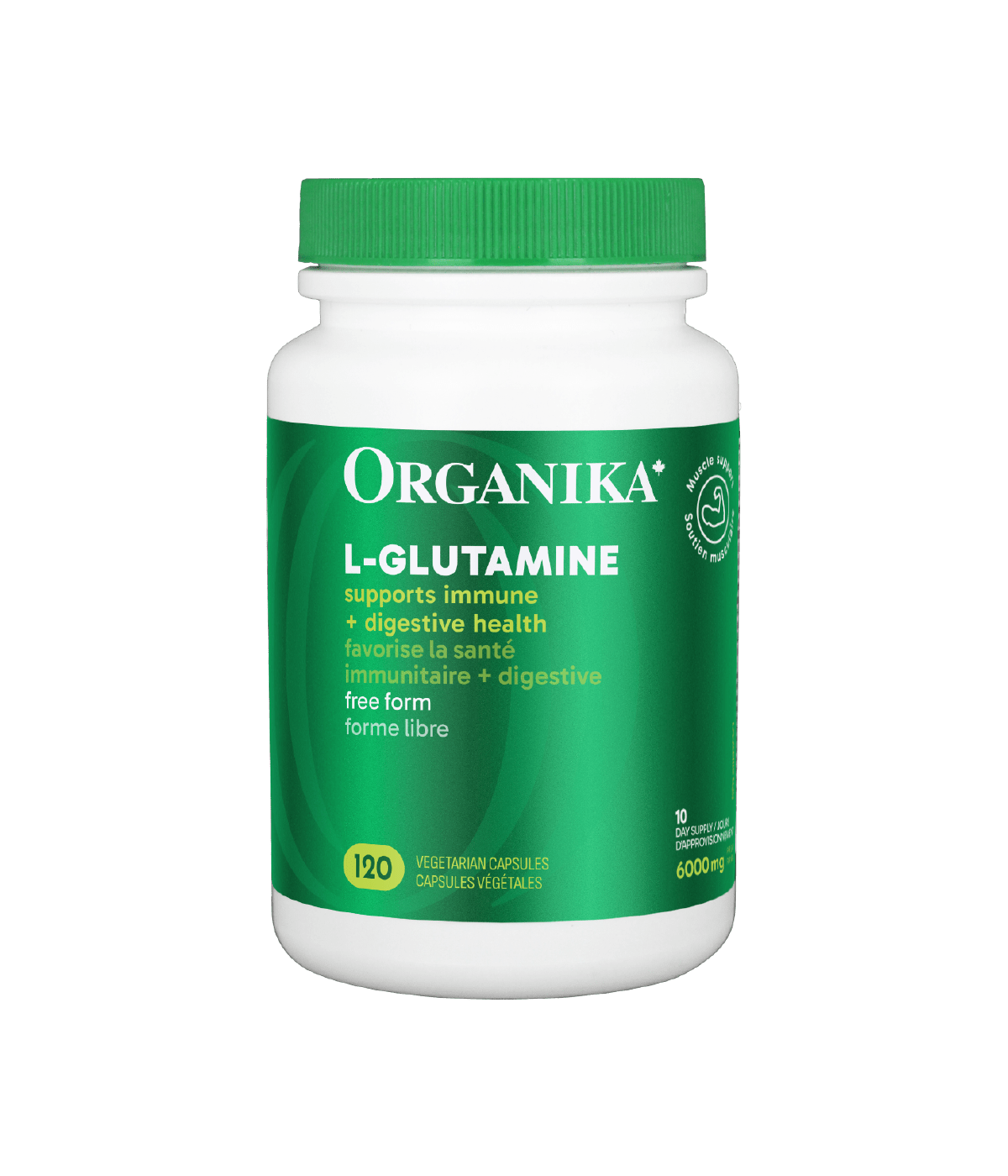
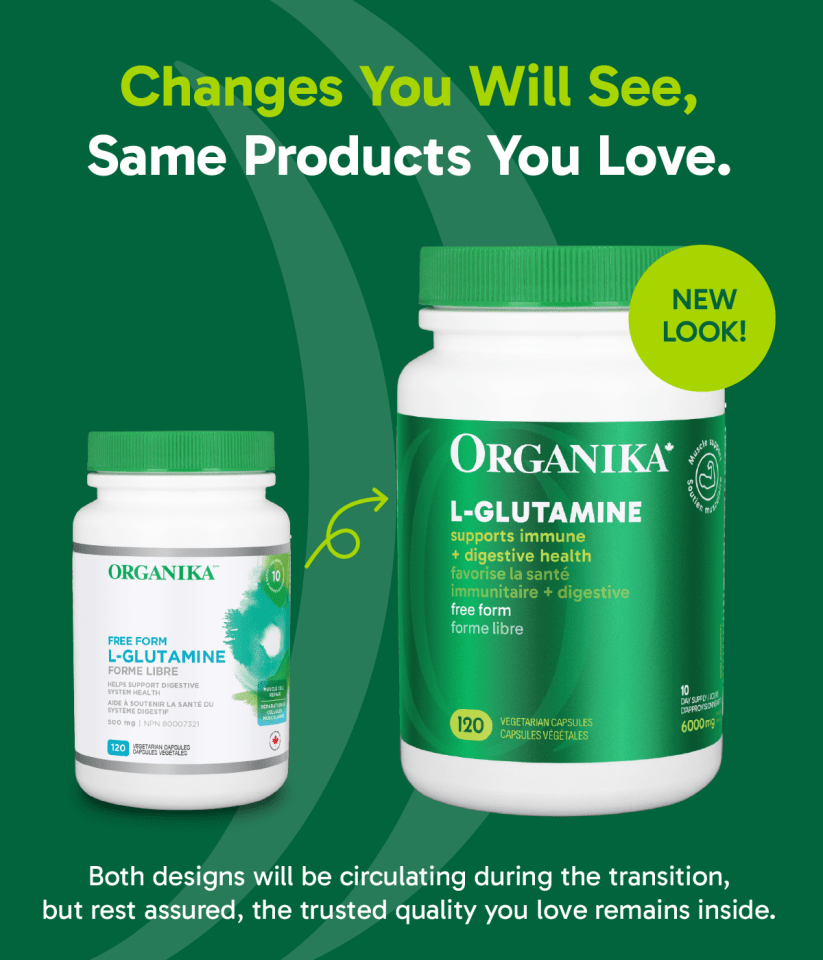
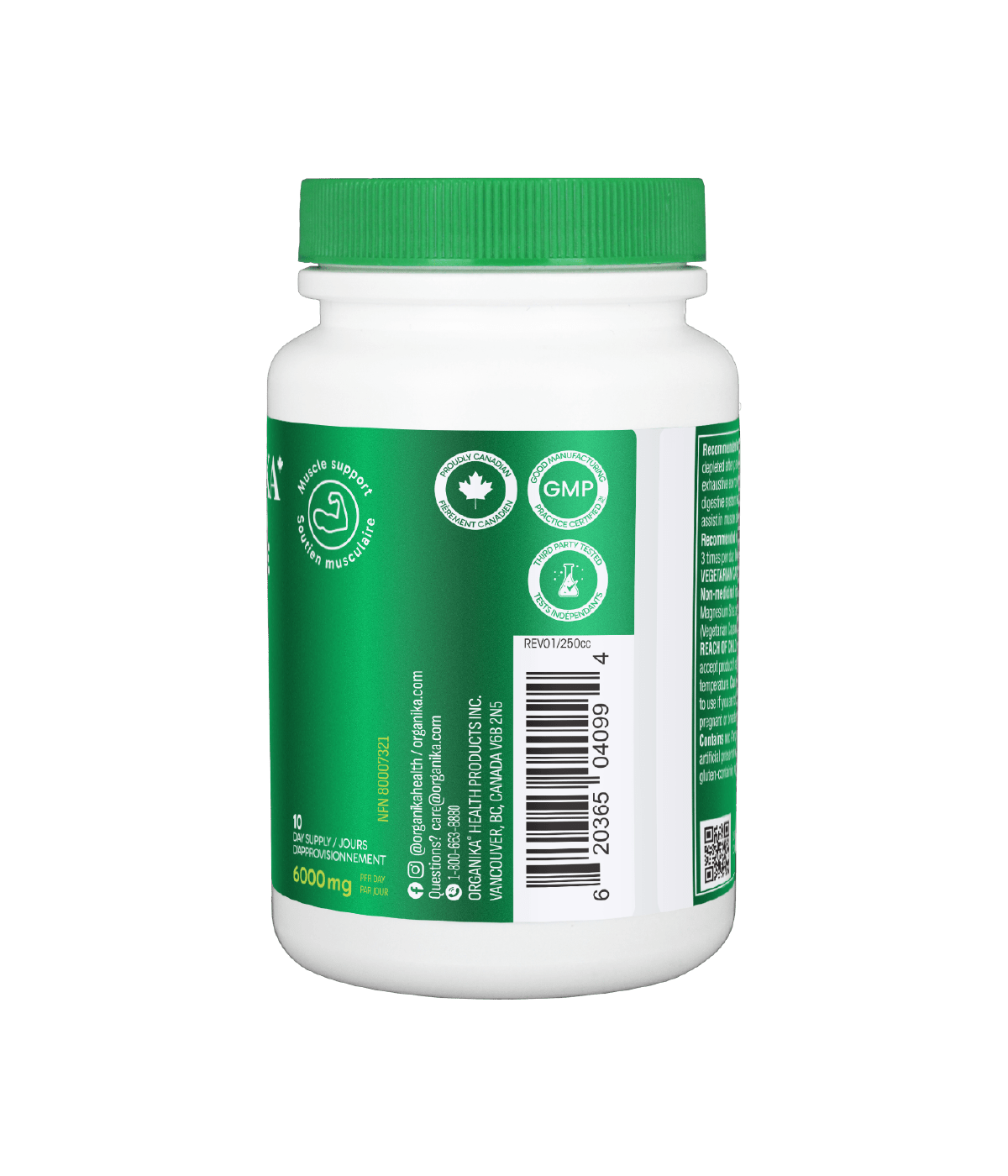
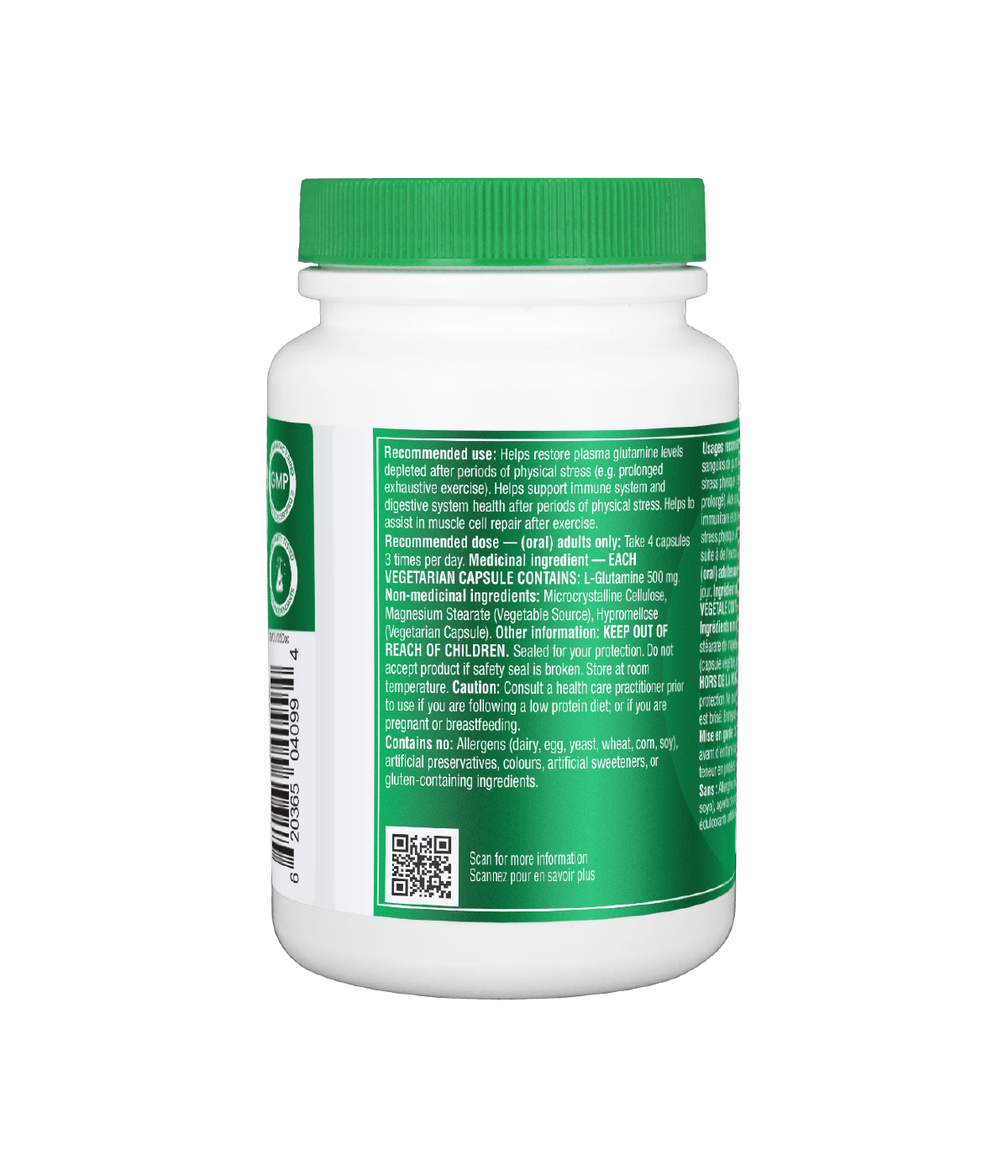
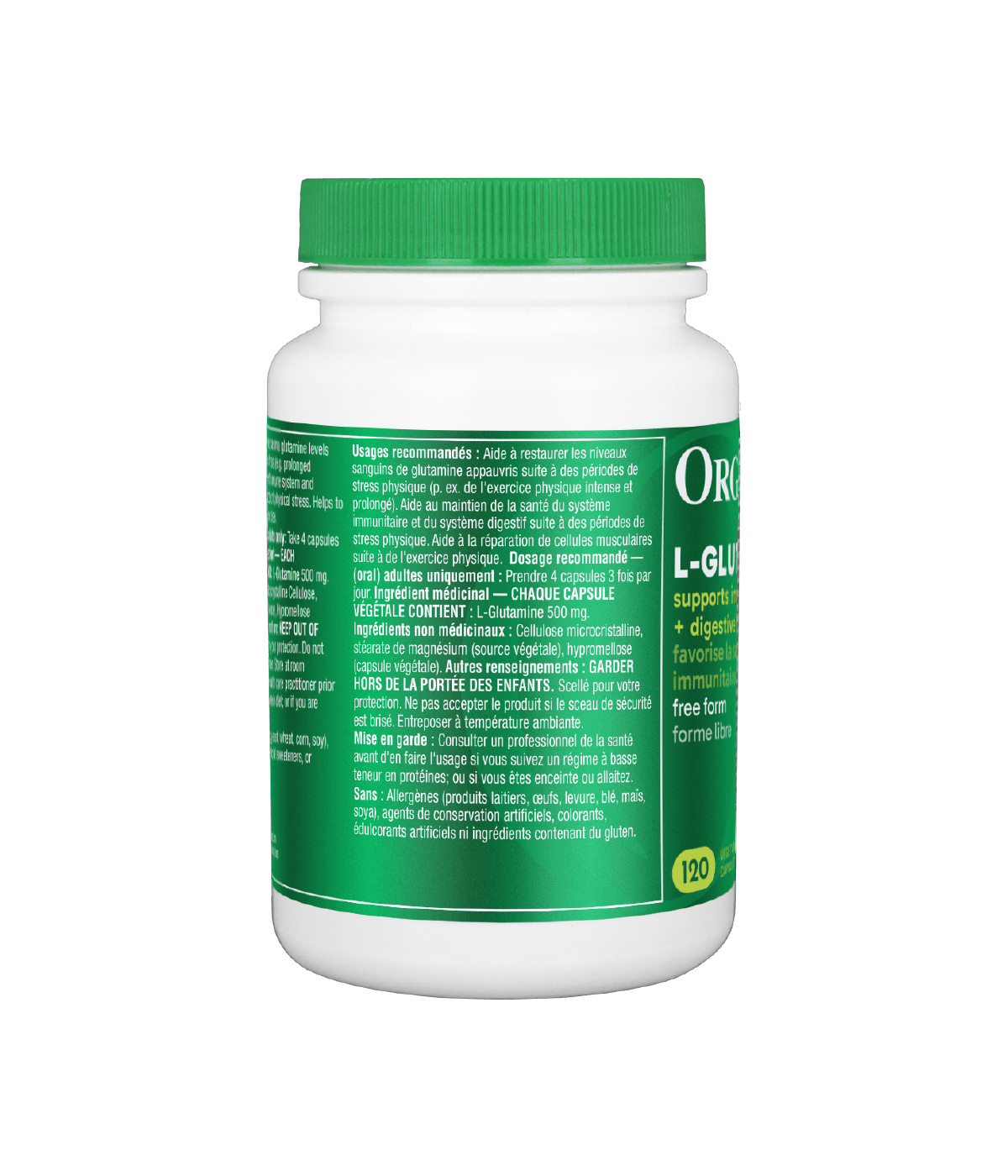




-
Is this right for you?

-


-


-

-

-

-

Free-Form L-Glutamine Capsules
Muscle, gut and immune support that fuels your recovery.
- Assists in muscle cell repair and recovery
- Supports immune system function, especially during times of stress
- Helps maintain the integrity of the gut lining for better digestive health
- Capsule form for ease-of-use
Couldn't load pickup availability



Notify Me When Available
Enter your email and we'll let you know as soon as this product is back
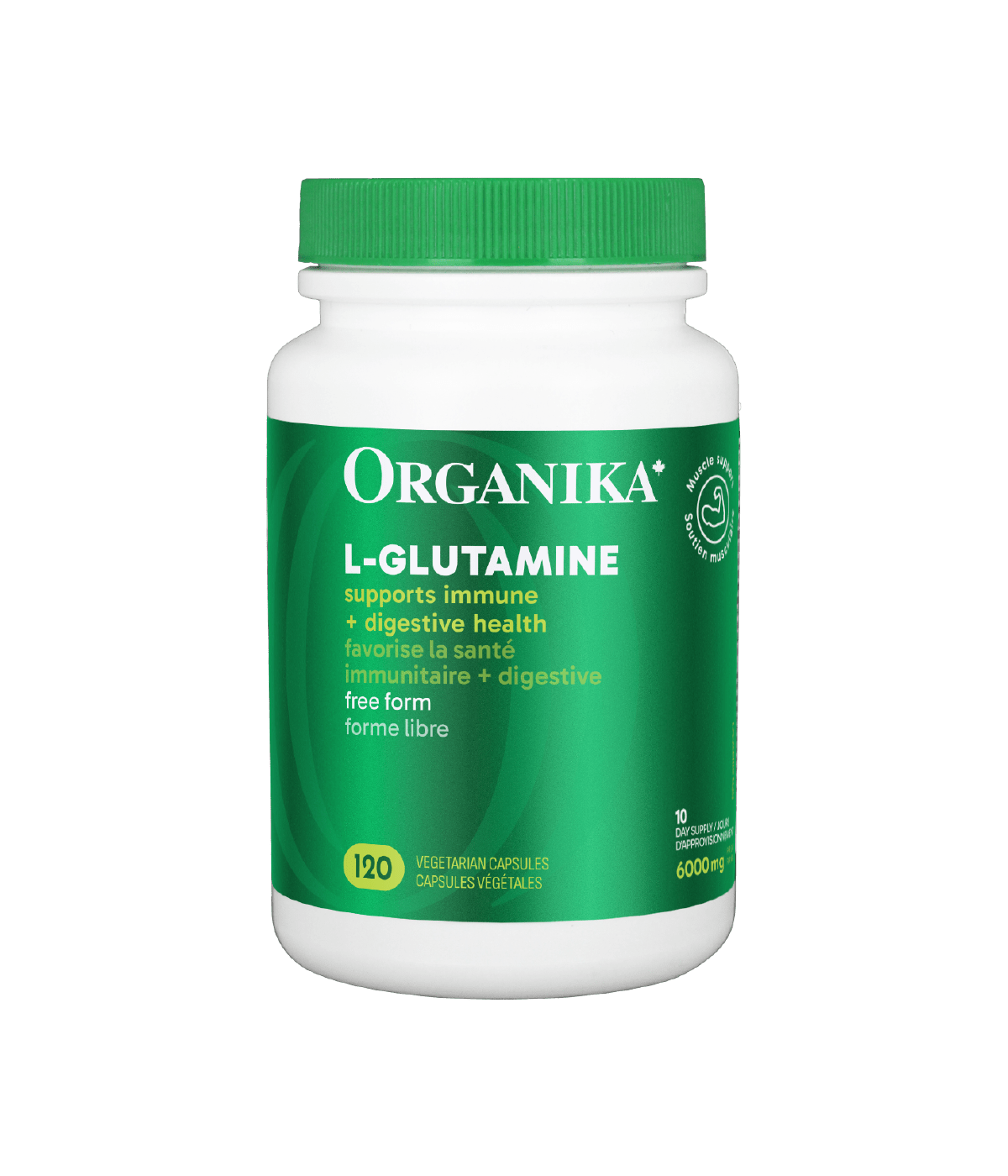
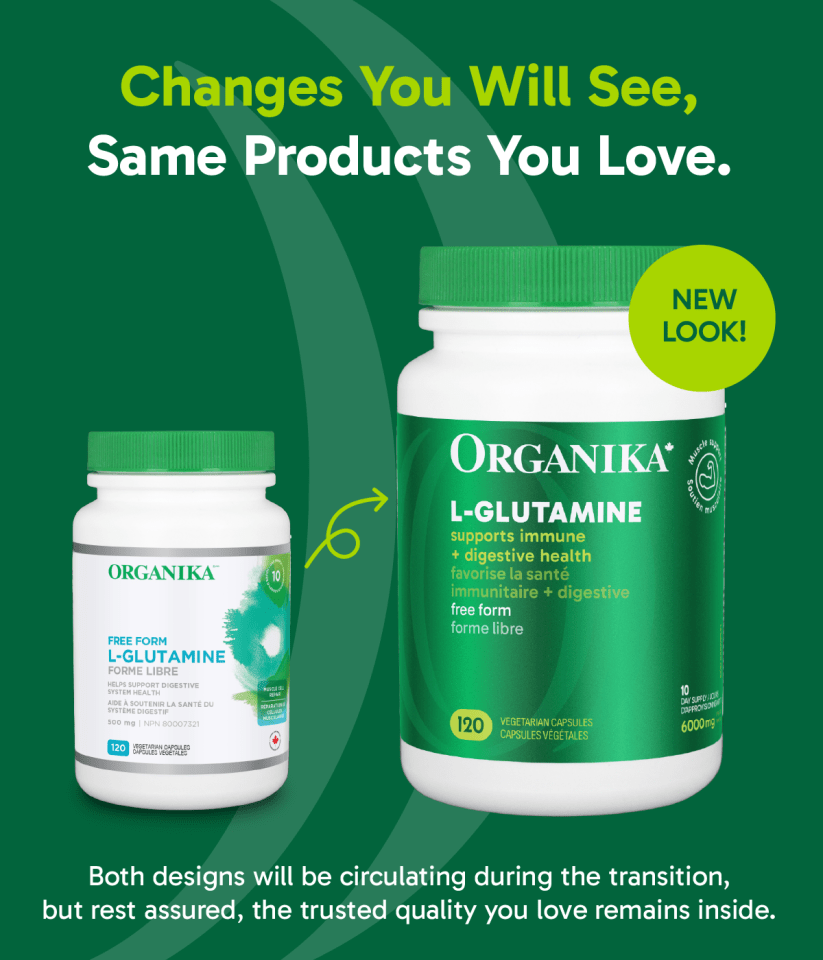
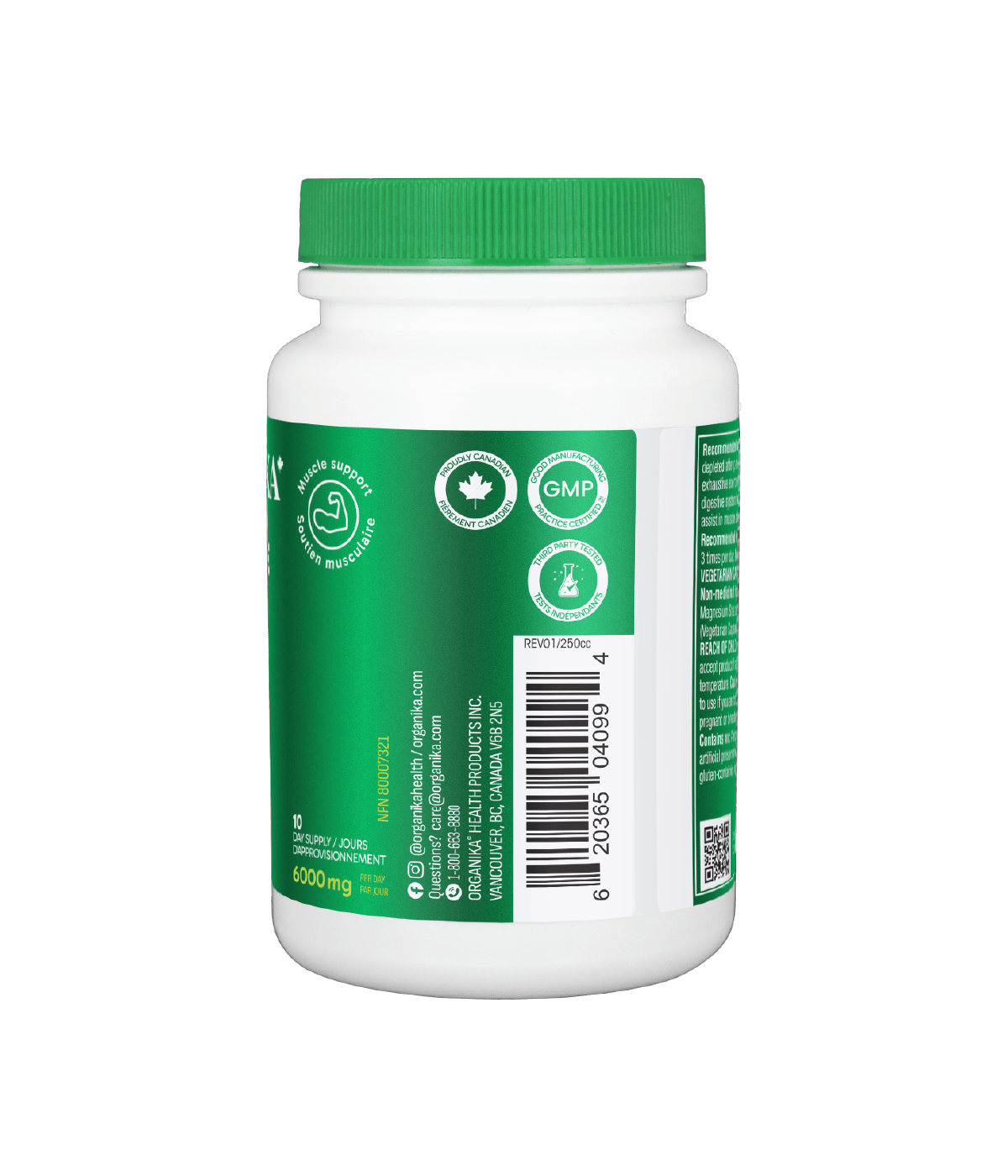
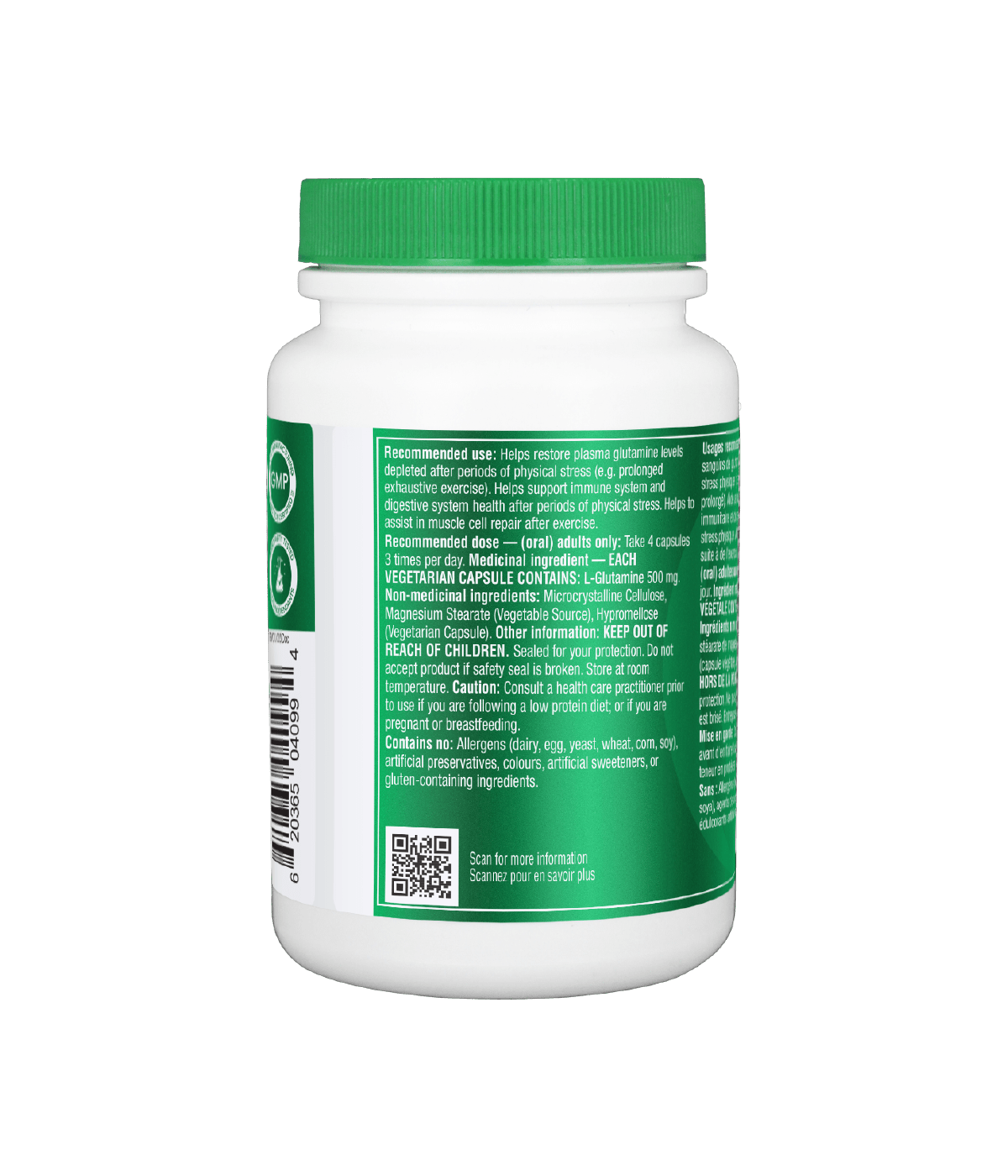
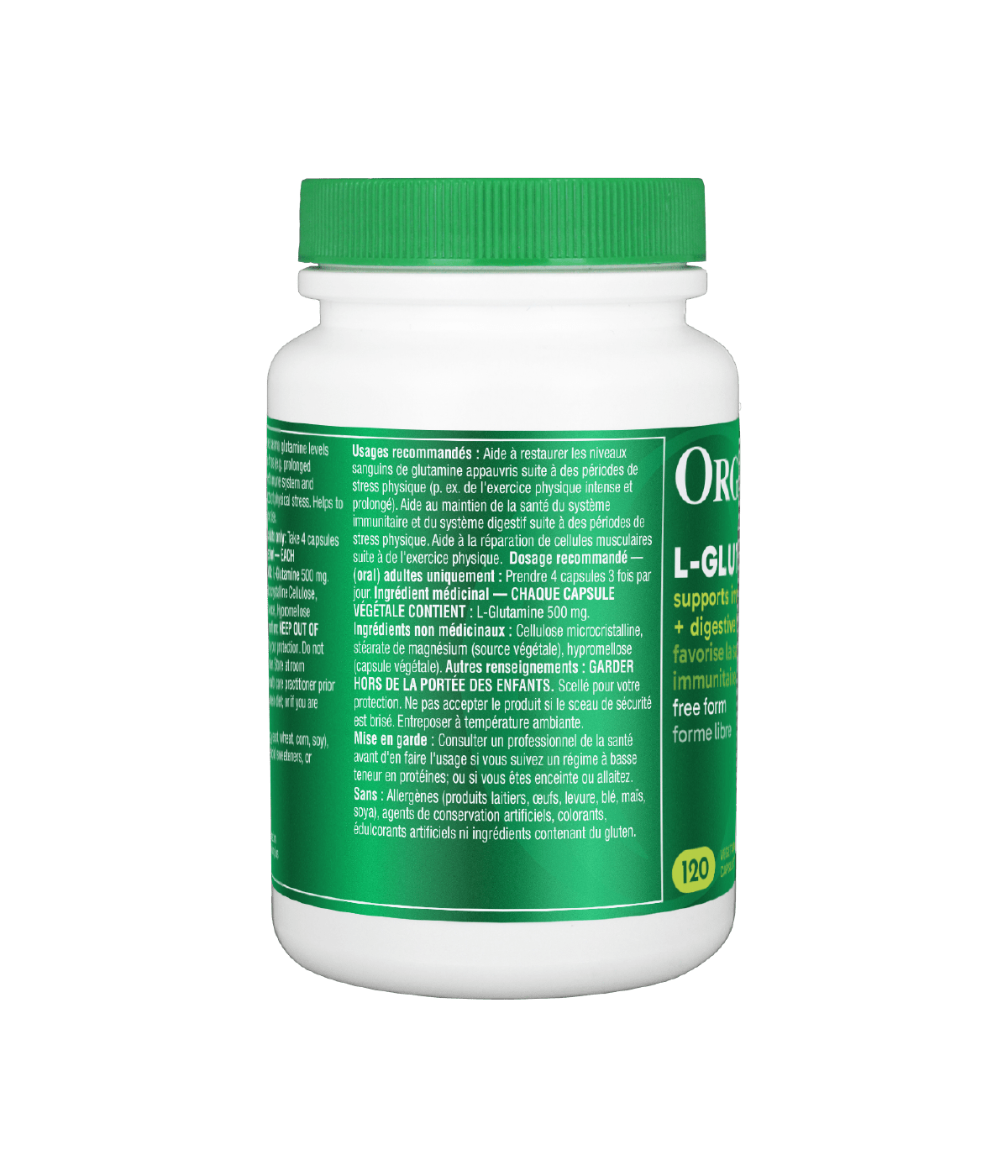





Supplement Facts





Ingredients & Nutrition
MEDICAL INGREDIENTS: L-Glutamine 500 mg.
NON-MEDICAL INGREDIENTS: Microcrystalline Cellulose, Magnesium Stearate (Non-GMO Vegetable Source), Hypromellose (Vegetarian Capsule).
How to Use: Take 4 capsules 3 times per day.
Is This Right for You?
Are you recovering from intense workouts and want to reduce soreness and speed up repair?
Do you experience digestive issues or want to support gut lining integrity?
Are you looking for a clean, easy-to-absorb way to replenish glutamine levels?
If you answered "Yes" to any of the above, this product is right for you.

-
Helps maintain the integrity of the gut lining for better digestive health
-
Capsule form for ease-of-use
Ingredients & Nutrition
Recommend For
Are you recovering from intense workouts and want to reduce soreness and speed up repair?
Do you experience digestive issues or want to support gut lining integrity?
Are you looking for a clean, easy-to-absorb way to replenish glutamine levels?
If you answered "Yes" to any of the above, this product is right for you.
Gluten-Free
Keto Friendly
Non-GMO
Vegan Friendly
No Artificial Sweeteners
No Artificial Colours or Flavours
Helps replenish what your body loses under stress and supports muscle recovery, gut integrity and immune resilience during periods of intense activity


The Full Scoop

-
Helps maintain the integrity of the gut lining for better digestive health
-
Capsule form for ease-of-use
When your bodyís under pressure from intense training, illness, or everyday stress, it draws heavily on glutamine, the amino acid that fuels muscle repair and strengthens immune defences. During high-demand moments, your natural supply can run low. These Free-Form L-Glutamine Capsules deliver targeted support to help:
- Rebuild sore, strained muscles after workouts
- Restore gut lining integrity for better digestion and nutrient absorption
- Replenish glutamine levels to support immune resilience when you're worn down
L-Glutamine is foundational fuel for keeping your body strong and resilient and an ideal supplement to support long gym sessions, physical recovery and gut repair.
Ask Away
We’ve got the FAQs covered. But if you’re still stuck, we’re only a message away.
Get in TouchWhat is the primary purpose of this product?
The primary purpose of L-Glutamine is to support muscle recovery and immune function.
How should adults take this L-Glutamine supplement?
This supplement can be taken after physical activity or throughout the day.
Is there a specific caution associated with the use of this supplement?
Consult a healthcare provider or professional prior to use if you are pregnant or breastfeeding.
Can this product be taken with or without food?
L-Glutamine can be taken with or without food.
Can this supplement be taken in combination with other dietary supplements or medications?
It's generally safe to consume L-Glutamine with other dietary supplements or medications, however consulting a healthcare provider or professional is recommended to avoid potential interactions.
How quickly should one expect to see the benefits of taking L-Glutamine?
One may start noticing benefits from taking L-Glutamine within a few days to a few weeks of consistent use.
Can individuals on a low protein diet use this supplement?
Individuals on a low protein diet should consult a healthcare pofessional before using this supplement.
Is there a suggested duration of use for this L-Glutamine supplement?
The suggested duration of use for L-Glutamine supplements can vary depending on individual health goals and specific circumstances. It's best to consult with a healthcare professional or follow the recommendations provided on the product label for guidance on duration of use.
Can pregnant or breastfeeding individuals use this product?
It's best to consult with a healthcare provider or professional if you are pregnant or breastfeeding.
You'll Likely Also Love...
NAC (N-Acetyl-L-Cysteine) Capsules
The foundation of cellular defence
Quercetin with Bromelain
The natural compounds that elevate your recovery through plant-based support
Inositol
Support for healthy hormone & mood balance, and ovarian function in females
Support Beyond Products
What you need to know about collagen’s role in muscle mass. You may have heard that collagen is the most abundant protein in the human body and is a key component of all connective and fibrous tissue, including muscle, bone, cartilage, tendons, ligaments, blood vessels, hair, and skin (1). Collagen is vital for muscle health, because it accounts for up to 10% of the total mass of skeletal muscle tissue in the body (2). Because working out involves increasing muscle mass, let’s explore why collagen becomes important. Does collagen play a role in exercise? We have long understood that exercise causes stress and micro-trauma to working muscles and connective tissue (tendons, ligaments, fascia, etc.). The higher intensity the exercise, the higher the impact on the muscles. This micro-trauma is necessary and valuable; it is the primary driver that directs the body to build more muscle mass and to increase strength. However, repair of micro-trauma, and increasing muscle mass and strength is only possible if the correct protein and amino acid building blocks are available in adequate amounts. Extensive research has shown that ensuring adequate protein intake has a large positive impact on muscle repair and growth (3). What amino acids do you need for muscle growth? The essential amino acids most required for muscle growth and repair are leucine, isoleucine, valine and glutamine, all of which are found in all animal sources of collagen (4). As a great animal-based source of protein, collagen is a helpful addition to an athlete’s diet. Research comparing the use of animal and plant-based sources of protein in athletes has shown that equivalent amounts of a carbohydrate or soy-based protein supplement does not have as marked of an impact as animal-based protein on post-workout muscle building (5). Collagen is also high in the amino acids proline and glycine, which are particularly important for the strengthening and repair of tendons and ligaments. They may also help decrease the likelihood of exercise-induced injury (3). Collagen increases muscle with training. The research has found that collagen peptide supplementation in combination with resistance training has helped body composition by both increasing muscle strength and the loss in fat mass (7)(8). So whether you are working out for weight loss, or increasing muscle mass, supplementing with collagen can make a big difference than when just resistance training alone (9). How can I incorporate collagen into my post-workout routine? The standard daily protein requirements for most people are 1-1.5g/kg of body weight per day, although research shows increasing it up to 1.6-2.0g/kg per day can be beneficial in individuals doing more significant resistance training. It’s important to remember that many people, these days, are mindful of increasing their protein intake. When adequate daily protein is consumed, research shows that a moderate post-workout dose of protein is sufficient to promote muscle repair. Studies vary, but the suggested dose is between 6 and 20g of protein, taken 1-3 hours post workout (6). NOTE: You don’t need to be a high-level athlete in order to benefit from collagen supplementation. Organika's Enhanced Collagen Original or a Plant-Based Collagen Booster are excellent sources of amino acids. When used in combination with a whole foods diet including high quality protein, collagen is useful for anyone who is trying to build muscle, enhance their recovery and prevent injury. Dr. Jessica Eastman is a licensed and registered Naturopathic Doctor in clinical practice in Vancouver BC, an experienced faculty member at the Institute of Holistic Nutrition, and the founder of Thrive Clinical Mentorship. Jessica strongly believes in integrative medicine and the value of a supportive community where patients, clients and clinicians can work together. REFERENCES Sibilla, S., Godfrey, M., Brewer, S., Budh-Raja, A., & Genovese, L. (2015). An overview of the beneficial effects of hydrolysed collagen as a nutraceutical on skin properties: Scientific background and clinical studies. The Open Nutraceuticals Journal, 8(1), 29-42. Gillies, A., Lieber, R. (2011). Structure and function of the skeletal muscle extracellular matrix. Muscle Nerve, 44(3): 318-331. Wells, D. (2009). The post-workout protein puzzle: which protein packs the most punch? Strength and Conditioning Journal, 31(1): 27-30. Gauza-Wiodarczyk, M., Kubisz, L., Wiodarczyk, D. (2017). Amino acid composition in determination of collagen origin and assessment of physical factors effects. International Journal of Biological Macromolecules, 104(Pt A):987-991. Philips, S. (2011). The science of muscle hypertrophy: making dietary protein count. Proceedings of the Nutrition Society, 70(1): 100-103. Schoenfeld, BJ., Aragon, AA., Krieger, JW. (2013). The effect of protein timing on muscle strength and hypertrophy. Journal of the International Society of Sports Nutrition, 10(53). Zdzieblik D, Oesser S, Baumstark MW, Gollhofer A, König D. Collagen peptide supplementation in combination with resistance training improves body composition and increases muscle strength in elderly sarcopenic men: a randomised controlled trial. Br J Nutr. 2015 Oct 28;114(8):1237-45. Kirmse M, Oertzen-Hagemann V, de Marées M, Bloch W, Platen P. Prolonged Collagen Peptide Supplementation and Resistance Exercise Training Affects Body Composition in Recreationally Active Men. Nutrients. 2019 May 23;11(5):1154. Oertzen-Hagemann V, Kirmse M, Eggers B, Pfeiffer K, Marcus K, de Marées M, Platen P. Effects of 12 Weeks of Hypertrophy Resistance Exercise Training Combined with Collagen Peptide Supplementation on the Skeletal Muscle Proteome in Recreationally Active Men. Nutrients. 2019 May 14;11(5):1072.
read moreTips for keeping your digestive tract happy. “You are what you eat and what you digest.” So much of gut health has to do with what you put inside your body. Safe to say how you digest the food you eat ultimately get absorbed at the gut level. It’s important to take care of your gut by providing it with nourishing and healing foods and supplements. We asked our Registered Holistic Nutritionists to weigh in on how to improve gut health and keep it healthy. Eat a diet full of fibre and probiotics Fibre is a plant-based carbohydrate (do not panic at that word) that helps to reduce the risk of many diseases of the heart, digestive system, and more. The two types (soluble and insoluble) are beneficial. It works to stimulate the growth of healthy gut bacteria, it helps to slow down the absorption of glucose, and helps to carry out wastes from the body. Probiotics are healthy gut bacteria that can be found in fermented foods such as yogurt, kimchi and kombucha. Probiotics help keep the gut happy by supplying the beneficial bacteria that helps keep everything calm and balanced. Healthy gut bacteria is linked with less inflammation, irritability, and digestive issues. Learn more about protecting your microbiome here. Safe to say ensuring you are eating a diet with root vegetables, fruits, green leafy vegetables, as well as whole grains (if you do consume grains), along with fermented foods will help improve your gut. Take gut health support supplements Collagen and or Bone Broth Collagen has amino acids that support gut health by reducing inflammation and healing the actual gut. Particularly bovine collagen has been shown to be specifically helpful for gut health. You can also go beyond collagen and take bone broth. Bone broth includes collagen, gelatin as well as other ingredients that may help with tissue healing and calm the inflammation of the gut’s lining. Gelatin is essentially the cooked version of collagen. They both provide the same amino acids and provide the same benefits. Want to have both? Full Spectrum Collagen 1,2,3 combines both collagen and bone broth! Probiotics We talked about the essential role probiotics play in gut health. To be sure you are getting the gut bacteria your body needs, it’s often suggested to take probiotics supplements daily. Providing your gut with these daily will allow the digestive system to be prepared. Probiotics + Prebiotics is a winning combination because it not only provides the beneficial gut flora, but also offers food for the beneficial bacteria (prebiotics) to thrive. Enzymes Part of gut health is the ability to digest the foods you eat. If you feel sluggish or bloated, you can take digestive enzymes that speed up the breakdown of carbohydrates, proteins and fats. Full Spectrum Plant Enzymes are good for digestion which in turn will help with gut health. Move your body Getting exercise daily will help to build your gut health. How? Essentially the muscles involved in digestion strengthen with exercise, this in turn helps with peristalsis (moving digested food throughout the gut). Exercise also plays a role in promoting healthy bacteria in the gut (which we always need a good balance of). In fact, studies have suggested that exercise has the potential of altering the gut flora and promoting wellness. It literally feels good to move! Limit Your Alcohol and Coffee Intake The gut’s bacteria don’t particularly like heavy alcohol consumption. Excessive drinking can lead to digestive upset, but also inflammation of the gut’s lining. When this happens, the gut becomes susceptible to discomfort, ulcers and even infections. For the same reason, if you feel you are getting an upset stomach after consuming caffeine, consider cutting down the amount to 1-2 cups a day. Decrease the stress A common piece of advice for health in general, but most definitely stress has a negative effect on gut health. Studies have shown that there are associations between anxiety and depression and matters of the gut, and vice versa. Therefore you may notice stomach pain following a stressful set of events; the mind and gut connection are very much in sync. Work on calming the mind and body, or consider stress support, such as Enhanced Collagen Relax. This is a great supplement to add into a beverage or water after a stressful day. Enhanced Collagen Relax gently takes the “edge off” without any drowsiness as it has collagen + Magnesium Bisglycinate And L-Theanine (stress and relaxation supportive supplements). Improving your gut health doesn’t have to be a daunting task. Take it one good habit at a time and remember that your whole-body health starts with your gut.
read moreLearn about the best supplements to support your joints and combat joint pain Joint pain can prevent you from doing things you love, an agonizing menace in your body often associated with arthritic pain. There's natural solutions that can provide relief and support. What is joint pain? Joint pain is described as discomfort coming from any of your joints – but the cause may be coming from your cartilage, bones, ligaments, or muscles and tendons. In most cases, joint pain is due to inflammation, or the cartilage around the joint being worn down. Cartilage is the material that rests between bones and prevents them from rubbing together. Over time, the cartilage breaks down (age, certain activities, etc.). This can lead to osteoarthritis and a source of joint pain that can be debilitating at times. The best supplements to take for joint pain The most well-known supplements to support the joints, and help with pain or inflammation appear to be: Collagen Glucosamine Chondroitin MSM Collagen Fish Oil – Omega 3s Turmeric Boswellia All of these are naturally occurring supplements that have been used to treat, support or prevent joint pain. There is growing evidence that these supplements help a body that is either aging or active. Taking these supplements may help with prolonged activity, recovery, performance and simply increasing your quality of life. How does collagen support your joints? Collagen is a protein that is found in many parts of the body that gives you structure, including cartilage, joints, ligaments, and bones. Because collagen declines (the production of it and the amount you have) as you age... your joints can start to feel it. Collagen is necessary for joint health. Providing your body with collagen supplements can offset the effects of wear and tear and help to rebuild that joint health, especially in high-risk groups.¹¹ Collagen also provides support for both tissue and cartilage formation, which is important in repairing and restoring, especially after movement. It also decreases stiffness in the joints, which helps with mobility; this is important for exercise and recovery and everyday life. Stronger joint stability is also contributed to strong bones, as collagen helps the bone matrix as well. Reducing inflammation, joint pain and muscle pain There are three other supplements that are massively known to help with joint pain, and taken by athletes, those with osteoarthritis, and anyone experience joint discomfort: Glucosamine, Chondroitin, and MSM. Glucosamine Research indicates that glucosamine may reduce inflammation¹, especially when used with chondroitin.² Glucosamine supplements protect your joints from damage because it is involved in the healthy development of cartilage. ³ ⁴ Chondroitin Chondroitin sulfate is a popular supplement that people often use to help manage joint pain, specifically with osteoarthritis. It has been studied and found to help symptoms associated with joint degeneration when combined with glucosamine. ⁵ ⁶ Methylsulfonylmethane [MSM] MSM is also used to decrease joint and muscle pain and overall improve the quality of life. It has been studied to benefit those with joint degeneration pain in ages 50+⁷ as well as found to significantly reduce inflammation in your body. Furthermore, it has been found to inhibit breakdown of cartilage, so useful in prevention before getting to that stage of life.⁸ MSM is well studied to reduce arthritis symptoms⁹ as well as stiffness and pain related to prolonged exercise,¹⁰ proven to be a helpful supplement for pain. Combining the best supplements into one NEW! Enhanced Collagen™ Bone & Joint is the answer for all things joint health, joint pain, for the active and anyone with osteoarthritis. We have taken Canada's #1 Collagen Powder* and combined it with a synergistic blend of ingredients that works to prevent bone loss, joint degeneration, inflammation, and reduce joint pain. Enhanced Collagen Bone & Joint provides: 9g Collagen 1500mg Glucosamine 800mg Chondroitin 1500mg MSM As well as Vitamin D3 and K2 (for added bone support) This is the ultimate joint health support and great for: prolonged exercise recovery osteoarthritis and joint pain joint and cartilage protection Are there others that I should consider adding? There are a few other supplements that also work with joint health in specific ways. Fish Oil/Omega-3s Omega-3 fatty acids work specifically to combat inflammation in the body, including your joints. Your body uses it as blockers to remove joint stiffness or tender joints causing pain. Try: Krill Oil Turmeric This is the aromatic and golden spice found in curry. It is a compound in the curcumin spice which contains proteins that block inflammation in the body and help with pain. Over time, it can ease joint pain and help with mobility. Try: Turmeric+ Powder with Curcumin, Turmeric Mylk Latte, Chicken Bone Broth Powder with turmeric Boswellia Also referred to as “Indian frankincense”, this is an extract from a naturally occurring plant and been a part of both Asian and African traditional medicine for centuries. The active ingredient helps with pain in joints. It may also slow down cartilage loss. Try: Boswellia Curcumin This article has been fact checked. REFERENCES: 1 https://pubmed.ncbi.nlm.nih.gov/28586015/ Yamagishi Y, Someya A, Imai K, Nagao J, Nagaoka I. Evaluation of the anti-inflammatory actions of various functional food materials including glucosamine on synovial cells. Mol Med Rep. 2017 Aug;16(2):1353-1359. 2 https://pubmed.ncbi.nlm.nih.gov/25719429/ Navarro SL, White E, Kantor ED, Zhang Y, Rho J, Song X, Milne GL, Lampe PD, Lampe JW. Randomized trial of glucosamine and chondroitin supplementation on inflammation and oxidative stress biomarkers and plasma proteomics profiles in healthy humans. PLoS One. 2015 Feb 26;10(2):e0117534. 3 https://pubmed.ncbi.nlm.nih.gov/30940583/ Nagaoka I, Tsuruta A, Yoshimura M. Chondroprotective action of glucosamine, a chitosan monomer, on the joint health of athletes. Int J Biol Macromol. 2019 Jul 1;132:795-800. 4 https://pubmed.ncbi.nlm.nih.gov/27422331/ Correa D, Lietman SA. Articular cartilage repair: Current needs, methods and research directions. Semin Cell Dev Biol. 2017 Feb;62:67-77. 5 https://www.ncbi.nlm.nih.gov/pmc/articles/PMC5241539/ Vasiliadis HS, Tsikopoulos K. Glucosamine and chondroitin for the treatment of osteoarthritis. World J Orthop. 2017;8(1):1-11. Published 2017 Jan 18. doi:10.5312/wjo.v8.i1.1 6 https://pubmed.ncbi.nlm.nih.gov/25589511/ Hochberg MC, Martel-Pelletier J, Monfort J, Möller I, Castillo JR, Arden N, Berenbaum F, Blanco FJ, Conaghan PG, Doménech G, Henrotin Y, Pap T, Richette P, Sawitzke A, du Souich P, Pelletier JP; MOVES Investigation Group. Combined chondroitin sulfate and glucosamine for painful knee osteoarthritis: a multicentre, randomised, double-blind, non-inferiority trial versus celecoxib. Ann Rheum Dis. 2016 Jan;75(1):37-44. 7 https://www.ncbi.nlm.nih.gov/pmc/articles/PMC4502733/ Xu G, Zhou T, Gu Y, et al. Evaluation of the Effect of Mega MSM on Improving Joint Function in Populations Experiencing Joint Degeneration. Int J Biomed Sci. 2015;11(2):54-60. 8 https://pubmed.ncbi.nlm.nih.gov/23011466/ Ezaki J, Hashimoto M, Hosokawa Y, Ishimi Y. Assessment of safety and efficacy of methylsulfonylmethane on bone and knee joints in osteoarthritis animal model. J Bone Miner Metab. 2013 Jan;31(1):16-25. 9 https://pubmed.ncbi.nlm.nih.gov/21708034/ Debbi EM, Agar G, Fichman G, Ziv YB, Kardosh R, Halperin N, Elbaz A, Beer Y, Debi R. Efficacy of methylsulfonylmethane supplementation on osteoarthritis of the knee: a randomized controlled study. BMC Complement Altern Med. 2011 Jun 27;11:50. 10 https://faseb.onlinelibrary.wiley.com/doi/abs/10.1096/fasebj.27.1_supplement.1076.7 A Randomized Double Blind Placebo Controlled Evaluation of MSM for Exercise Induced Discomfort/Pain. - Kalman - 2013 - The FASEB Journal - Wiley Online Library 11 1 24-Week study on the use of collagen hydrolysate as a dietary supplement in athletes with activity-related joint pain - PubMed (nih.gov) Clark KL, Sebastianelli W, Flechsenhar KR, Aukermann DF, Meza F, Millard RL, Deitch JR, Sherbondy PS, Albert A. 24-Week study on the use of collagen hydrolysate as a dietary supplement in athletes with activity-related joint pain. Curr Med Res Opin. 2008 May;24(5):1485-96.
read more





